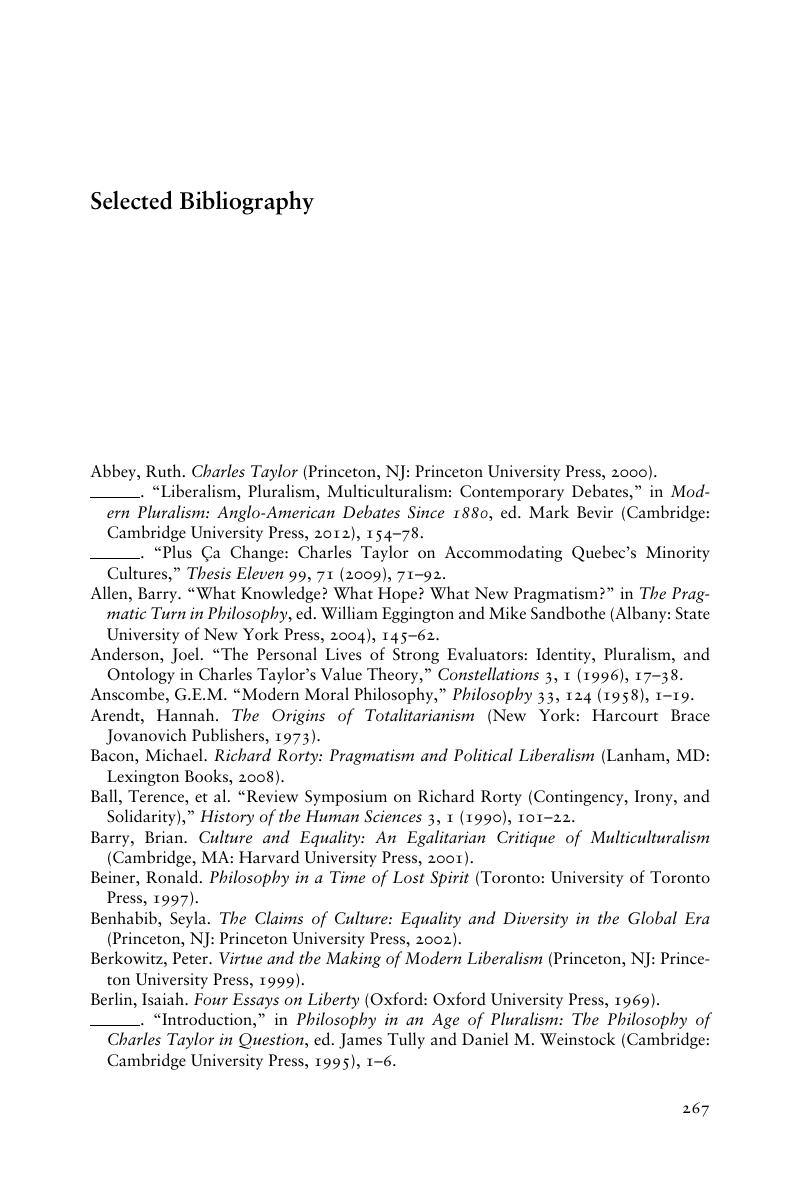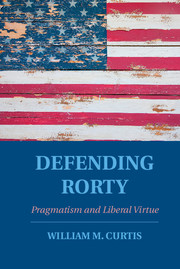Book contents
- Defending RortyPragmatism and Liberal Virtue
- Defending Rorty
- Copyright page
- Dedication
- Contents
- Preface
- Glossary
- Introduction
- 1 Rorty's Pragmatism
- 2 Rorty's Pragmatic Virtue Liberalism
- 3 Critics
- 4 Rorty versus Taylor
- 5 Rorty, Religion, and Pragmatic Liberalism
- 6 Rorty's Liberal Utopia and Huxley's PragmatistIsland
- Conclusion
- Selected Bibliography
- Index
- References
Selected Bibliography
Published online by Cambridge University Press: 05 August 2015
- Defending RortyPragmatism and Liberal Virtue
- Defending Rorty
- Copyright page
- Dedication
- Contents
- Preface
- Glossary
- Introduction
- 1 Rorty's Pragmatism
- 2 Rorty's Pragmatic Virtue Liberalism
- 3 Critics
- 4 Rorty versus Taylor
- 5 Rorty, Religion, and Pragmatic Liberalism
- 6 Rorty's Liberal Utopia and Huxley's PragmatistIsland
- Conclusion
- Selected Bibliography
- Index
- References
Summary

- Type
- Chapter
- Information
- Defending RortyPragmatism and Liberal Virtue, pp. 267 - 276Publisher: Cambridge University PressPrint publication year: 2015



